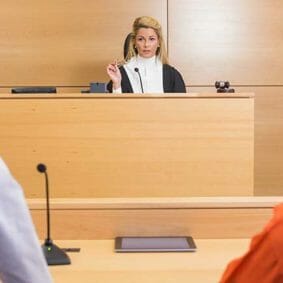January 11th, 2017 by Attorney Dan Carman

Like every country, the United States has its bright spots and its sore ones. One major challenge the nation continues to struggle with is incarceration. We have the world’s highest incarceration rate, yet we are the only democracy that has no independent authority monitoring prison conditions and enforcing minimal standards of health and safety. The system is so fragmented that it is difficult to accurately determine just how many people are confined. Local jails, juvenile correctional facilities, state prisons, and federal prisons hold more than 2.2 million people and there are others locked up in Indian Country jails, military prisons, immigration detention facilities, civil commitment centers, and territorial prisons.
Whether a person is in jail awaiting court or in prison serving a sentence imposed after trial, they still have rights. In the U.S., prisoners and jail inmates retain rights such as:
- free speech
- free exercise of religion
- court access
- attorney access
- receipt of needed, competent medical treatment
- freedom from assaults by other inmates
- freedom from unjustified assaults by correctional officers
- not to be subjected to cruel and unusual punishment.
The Eighth Amendment to the U.S. Constitution protects against any punishment that can be considered inhumane treatment or that violates the basic concept of a person’s dignity.
Despite these basic rights, people who are incarcerated are often victims themselves — of medical neglect, mental health neglect, abuse, sexual assault, violence, and wrongful death. Many prisoners are subjected on a daily basis to conditions that endanger their health, safety, and human dignity. For example, the Bureau of Justice Statistics determined that nearly one of every ten state prisoners is sexually victimized during confinement. Around one-fifth of male prisoners in the U.S. report being the victim of physical assault from other inmates, and roughly the same number say they have been assaulted by prison staff.
The conditions in private prisons have long been so atrocious that the Justice Department announced this year that it was phasing out private prisons at the federal level. This was based on conclusions that private facilities are both less safe and less effective at providing correctional services than those operated by the federal government. While the discontinuation of these facilities will affect only about 22,000 inmates, the hope is that it will serve as the catalyst for change throughout the U.S. prison system — particularly because states often look to their federal partners for the best practices on prisons. Of course, prisons run for profit are hardly the only ones with substandard conditions.
Not every law firm is willing to fight for the rights of inmates, but at the Lexington, KY-based Carman Law Firm, we do it every day. If you have concerns about the way your incarcerated loved one is being treated, or if you have any questions about this topic, you can find out more by discussing it with one of our criminal defense attorneys. Call us today at (859) 685-1055 or fill out this online contact form to put our thorough, experienced representation to work. Whether your loved one is at Blackburn, Northpoint, Fayette Regional Juvenile Detention Center, Woodford County Jail, or any other facility, we can help.

 Focusing on criminal matters, Mr. Carman is admitted to practice law in all Courts of the Commonwealth of Kentucky, the United States District Courts for the Eastern and Western Districts of Kentucky, and the United States Court of Appeals, Sixth Circuit. He is a member of the American, Kentucky, and Fayette County Bar Associations. Mr. Carman also worked as a prosecutor, as well as a legal assistance attorney. Attorney Dan Carman can help you with any criminal defense matters you may need including; DUI, drug, and weapons charges, trespassing, traffic violations and more. [
Focusing on criminal matters, Mr. Carman is admitted to practice law in all Courts of the Commonwealth of Kentucky, the United States District Courts for the Eastern and Western Districts of Kentucky, and the United States Court of Appeals, Sixth Circuit. He is a member of the American, Kentucky, and Fayette County Bar Associations. Mr. Carman also worked as a prosecutor, as well as a legal assistance attorney. Attorney Dan Carman can help you with any criminal defense matters you may need including; DUI, drug, and weapons charges, trespassing, traffic violations and more. [